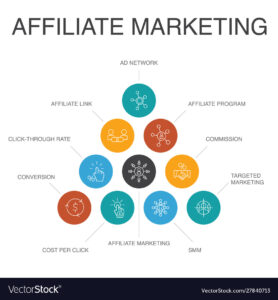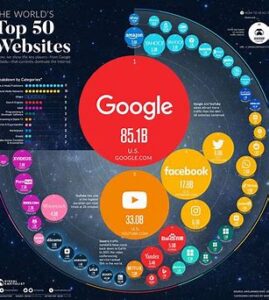Technical SEO is that understated yet crucial element of online success, especially for affiliate sites. It’s the backbone that supports everything else you do, ensuring search engines understand your site and get it in front of the right people at the right time.

One major thing that sets technical SEO for affiliate sites apart is the particular focus on efficient crawling and indexing. Search engines need to crawl your pages smoothly to index them correctly, and this is how you start ranking better. It’s like setting up a storefront. If your products aren’t neatly displayed, customers can’t find what they need, and they’ll leave.
click here to start your own online business for free Ced0224
Ranks on search engines aren’t just a badge of honor; they can make or break your affiliate marketing strategy. Higher visibility leads to more traffic, which means more potential for clicks and sales. Without solid technical SEO, you’re waving goodbye to that traffic.
Crawling and indexing might seem technical, but they’re all about making sure search engines can easily browse your site and list it in the search results. It involves technical tweaks like managing crawl budgets efficiently so important pages get indexed first.
Think of technical SEO as creating a clear road map for search engines. This way, they’ll know exactly where to find your content and how to serve it up to users searching for related products and information.
Optimizing Site Architecture and Navigation
A well-structured site architecture is key to a seamless user experience and effective SEO. Without a sound structure, both users and search engines may struggle to find pages that matter.

Creating a logical flow within your site isn’t just good practice; it plays a pivotal role in how search engines understand your content. Think of your site like a well-organized book. If chapters and sections are jumbled, readers won’t make it far.
Hierarchical navigation makes a huge difference. By organizing content from broad categories down to specific topics, you ensure both users and search engines can easily find and index pages efficiently. It’s all about keeping things logical and straightforward.
Breadcrumb navigation also deserves a mention. This little trick boosts navigation by showing the path users took to arrive at the current page. It’s like leaving a trail of breadcrumbs that search engines can follow too.
An XML sitemap acts as a roadmap for search engines. Even if some of your pages are buried deep, a sitemap helps search engines spot them. You’re essentially handing them a list saying, “Hey, these are the pages I want you to know about.”
Enhancing Page Load Speed and Mobile-Friendliness
Page load speed isn’t just a number—it’s a critical factor in keeping visitors on your site. Slow sites drive people away, sometimes before they’ve even seen what you’re offering. For affiliate sites, this could cost you valuable conversions.

Speed can be improved in a few practical ways. One effective method is through browser caching, which stores static files so users don’t have to wait for re-downloads on repeat visits. This speeds up their experience considerably.
Image optimization is another must-do on the technical SEO checklist. Large, unoptimized images can be major culprits of slow load times. By compressing images without sacrificing quality, your site speeds up without losing its visual appeal.
Responsiveness to different devices is huge. People use phones and tablets more than ever, and a mobile-friendly design ensures that no matter the device, your site looks and works great. A responsive design adapts to screen sizes and gives users what they need instantly.
There are handy tools out there to help measure page speed and performance. These tools don’t just highlight issues but often provide actionable insights to enhance load times. Regular check-ins with these tools can help maintain a healthy, fast site.
SEO-Friendly URL Structures and Internal Linking
Crafting SEO-friendly URLs is all about keeping things clear and straightforward. URLs should be logical and easy to understand, acting like a brief preview of what the page contains. A clean URL is more likely to get clicked on, both by search engines and users.
Balancing simplicity with keywords is the goal. While you want to include relevant keywords to help with SEO, keeping URLs concise is crucial. Overloading a URL with too many words can have the opposite effect.

Internal linking might sound basic, but it’s a powerhouse for SEO and keeping visitors engaged. By strategically linking to other pages within your site, you increase the time users spend on the site, as they’re encouraged to check out more than one page. Plus, it helps distribute ranking power throughout your site.
Avoiding orphan pages, which are pages with no incoming links, is essential. These pages often get ignored by search engines, as they aren’t recommended through links from other parts of your site. With careful internal linking, every page has a chance to be seen and indexed.
Ensuring Secure and Accessible Websites
Security and accessibility are the unsung heroes of technical SEO. A secure site builds trust with your visitors, encouraging them to stick around and engage with your content.
HTTPS is more than just a protocol; it’s a sign that you value your users’ privacy. Implementing SSL certificates not only secures data but can also boost your rankings, as search engines favor secure sites.
Secure hosting solutions are equally important. A robust hosting option helps keep your site fast and secure, ensuring uptime and protection against threats.
Accessibility matters too. Ensuring your site can be accessed by everyone, including those with disabilities, is both a legal obligation and a chance to reach a broader audience. Simple steps like including alt text for images and ensuring keyboard navigability can make a huge difference.

Regularly checking for and fixing broken links keeps the user experience smooth and ensures search engines can crawl your site without running into dead ends. Tools for monitoring links and errors make this task manageable and help maintain site integrity.
